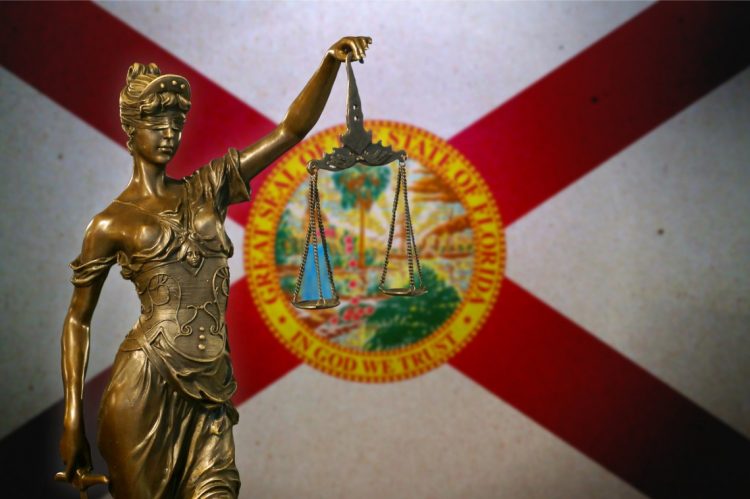Early in May, Florida Governor Ron DeSantis signed a bill officially titled “Interests of Foreign Countries” into law. Scheduled to go into effect on July 1, this new law is ostensibly intended to protect the state from the influence of countries hostile to the United States.
What the bill actually does, though, is an entirely different question. Most importantly to the real estate industry, the new law bans the sale or ownership of many types of property by citizens of certain countries, including China, North Korea, Venezuela, Syria and Russia.
Since its proposal, the law has drawn national controversy, and has also confounded many who are involved in Florida real estate, with unanswered questions around enforcement, liability and implementation.
Most importantly, though, there are significant concerns that the legislation will spark discrimination, as well as fueling animosity and distrust of certain racial or ethnic groups.
“It’s very concerning,” says Hope Atuel, CEO of the Asian Real Estate Association of America (AREAA). “Our community has obviously been subjected to hate crimes immediately after the onset of COVID. And we feel that now, it has escalated to people saying we don’t belong here in this country.”
A lawsuit filed by the Asian American Legal Defense and Education Fund and ACLU on behalf of several Chinese citizens living in Florida is already challenging the law. Additionally, federal lawmakers led by members of the Congressional Asian Pacific American Caucus introduced a bill that would preempt the Florida law or other state laws like it.
But with less than a month before it goes into effect, Atuel says she is worried that the immediate effect of the law will be harmful to the Asian community and Asian homebuyers—many of whom likely have nothing to do with the countries the law is targeting.
“You could just see how violations of the Fair Housing Act are going to be very, very evident based on this legislation,” she says.
Some of the biggest issues coming out of the bill have stemmed from a lack of clarity or definition. It remains unclear who is responsible for determining whether a potential buyer is allowed to purchase a property, or who is legally liable if a property is sold in violation of the law.
The bill outlines additional restrictions for properties within a certain distance of military installations or “critical infrastructure,” adding another layer of potential issues to any transaction.
A spokesperson for Florida REALTORS®, the state REALTOR® association, told RISMedia via email that the organization could not answer specific questions about liability or other aspects of the law, saying that “(w)e’re still learning about this along with everyone else.”
A memorandum on the Florida REALTORS® website outlines the basics of the law, but advises members to consult legal counsel if clients have questions about the “new and very technical law.”
Atuel says there has been “zero guidance” from the governor’s office so far. DeSantis, who recently launched a long-telegraphed presidential campaign, described the bill back in May as part of a broader effort to combat “the United States’ greatest geopolitical threat: the Chinese Communist Party.”
It remains unclear just how much land foreign entities own in Florida or any other state. The Florida law attempts to carve out an exception for certain visa holders from the banned countries to buy one residential property that is two acres or smaller, if it is not near a military base or facilities defined as “critical infrastructure” (which include water treatment facilities, seaports and gas processing plants, among other things).
Atuel says she is fully supportive of defending national security, which is the stated premise of the bill (and other similar proposals in other states). She added that she could even “appreciate” some of the specific tenets of the law around banning the sale of agricultural land or protecting properties near military bases from foreign interests.
But as it is written, Atuel says the new Florida law creates the potential for broad-based discrimination, and wonders if sellers or even REALTORS® will refuse to work with certain buyers based on their last name or appearance, fearing legal liability. She points out that certain names are common in more than one country—some of which are restricted under the law and some which aren’t.
“So it is a chilling effect, right? Without really knowing who that person is, or based on those assumptions and stereotypes—what are agents to do?” she asks.
Fair housing laws explicitly ban discrimination based on national origin, and the REALTOR® Code of Ethics additionally bans members from being “parties to any plan or agreement to discriminate against a person or persons on the basis of…national origin.”
Chinese immigrants have increasingly flocked to the South, according to Atuel, and laws like Florida’s could quickly discourage buyers from looking at the state for a place to live. Even watered-down versions of the law (including one being considered in Texas, which was initially much closer to Florida’s in its scope) can make people think twice about how welcome they would feel there, particularly after years of increasing hate crimes and discrimination.
Whatever happens with the law, Atuel says the real estate community should understand how harmful these laws can be, and the far-reaching discriminatory effects they can have. AREAA is tracking bills in 33 other states that ban some countries from certain types of property ownership—many of them more narrow than the Florida law.
At the same time, she says there is a long history of laws discriminating against the Asian and Pacific Islander community, from the Chinese Exclusion Act in the 19th century to the internment of Japanese-Americans during World War II. Legislation that restricts Asian families’ ability to grow their lives through homeownership or creates fear or distrust should be opposed by everyone.
“It seems like we are going backwards,” Atuel says. “And it is sad, because we’re the fastest-growing community right now, pretty much propelled by immigration. And we are—yet again—being made to feel that we don’t belong in this country.“












